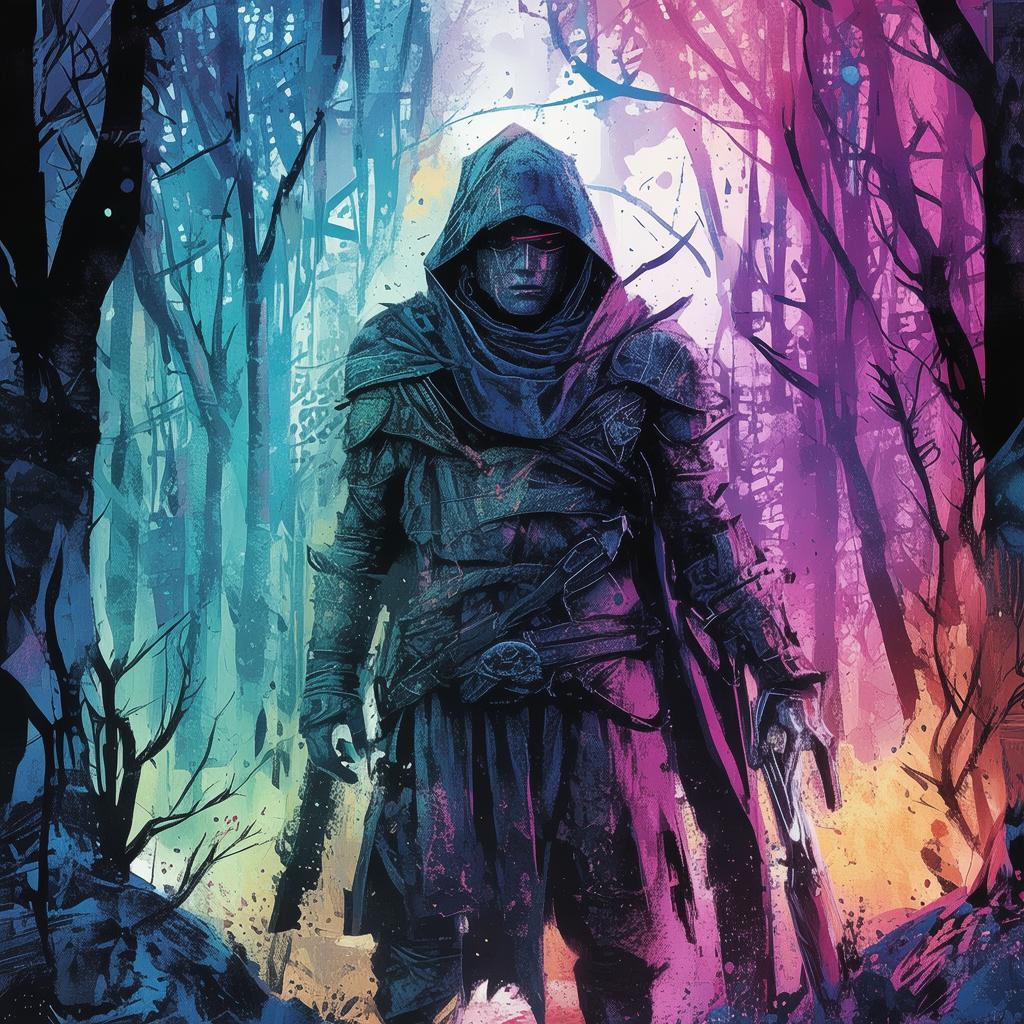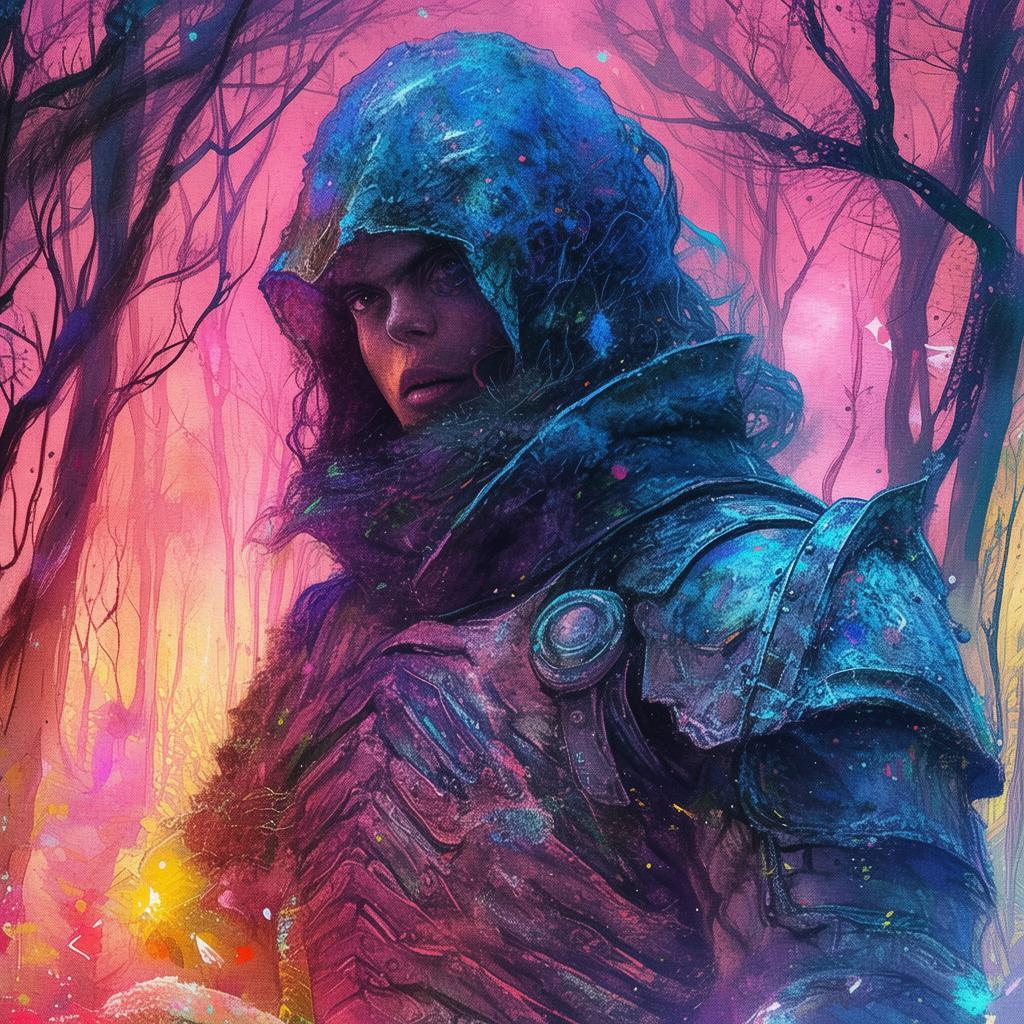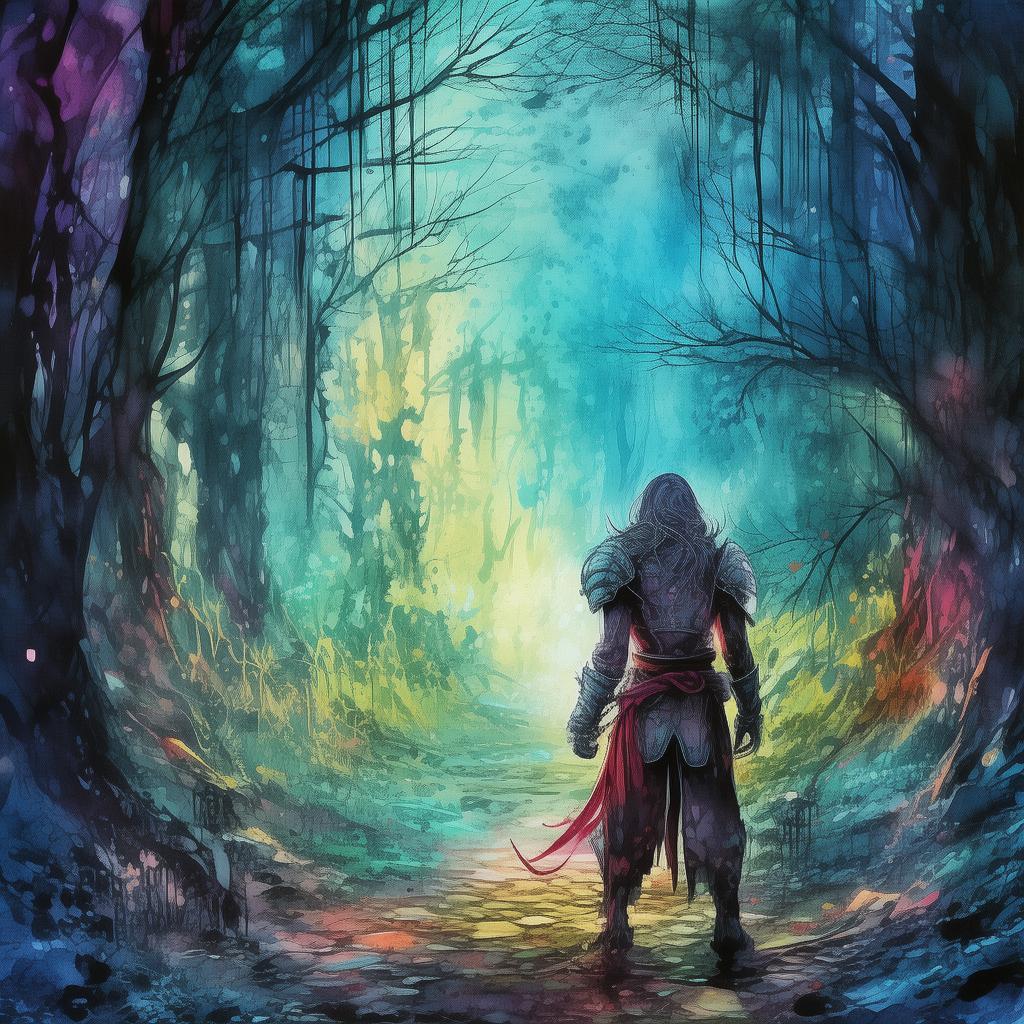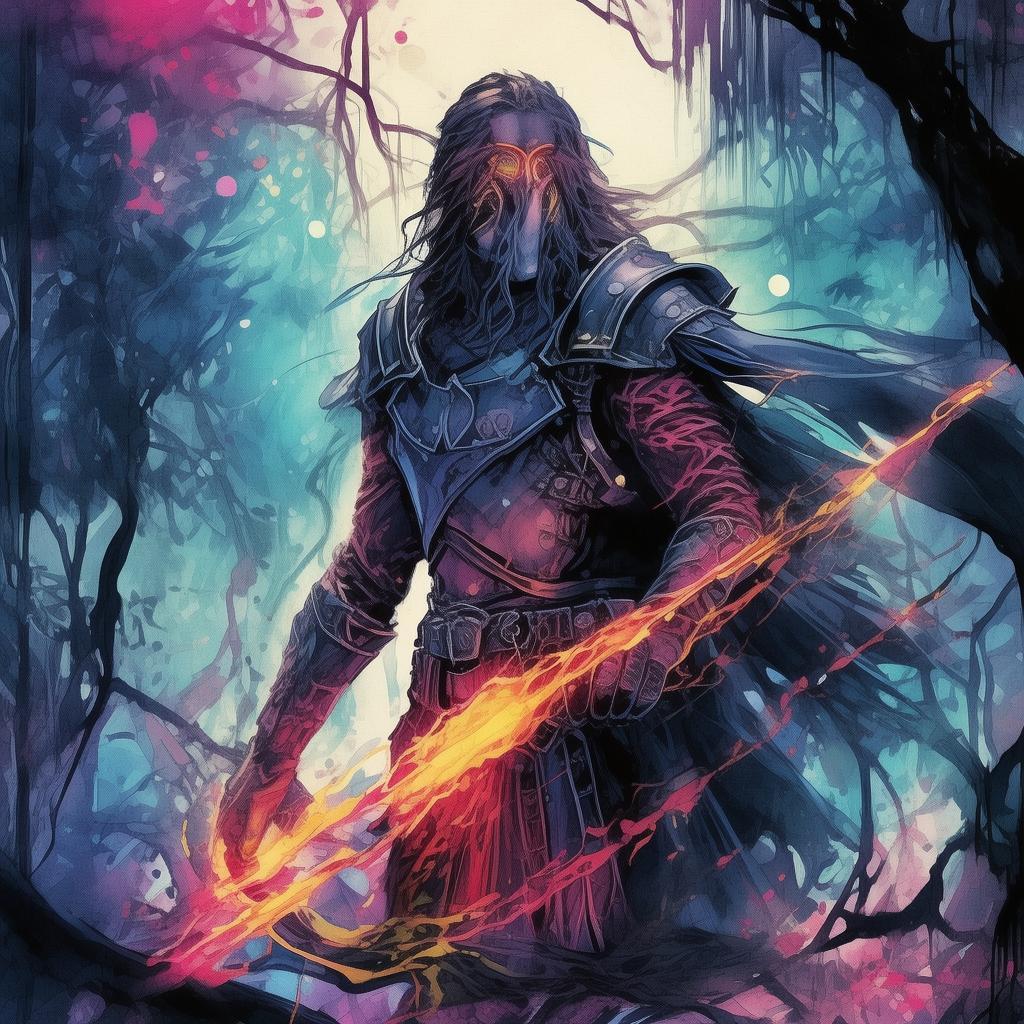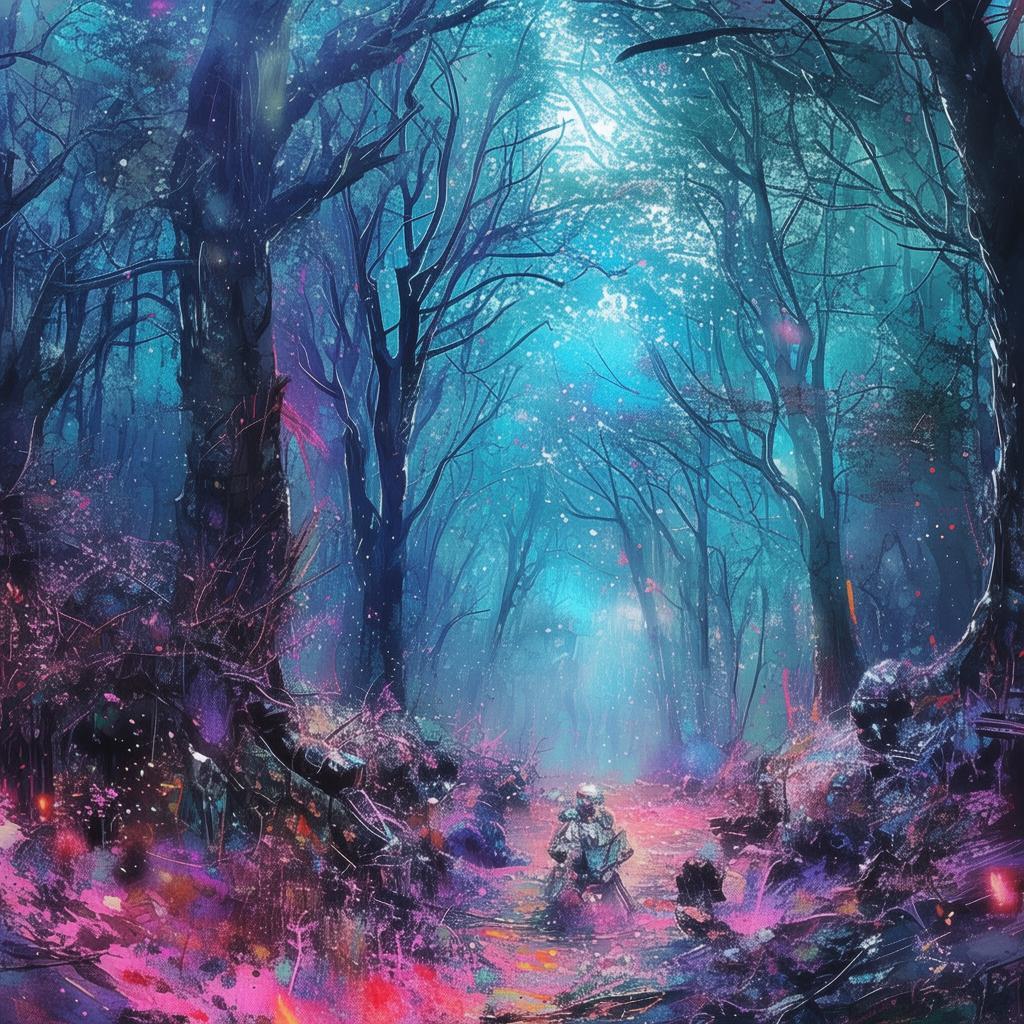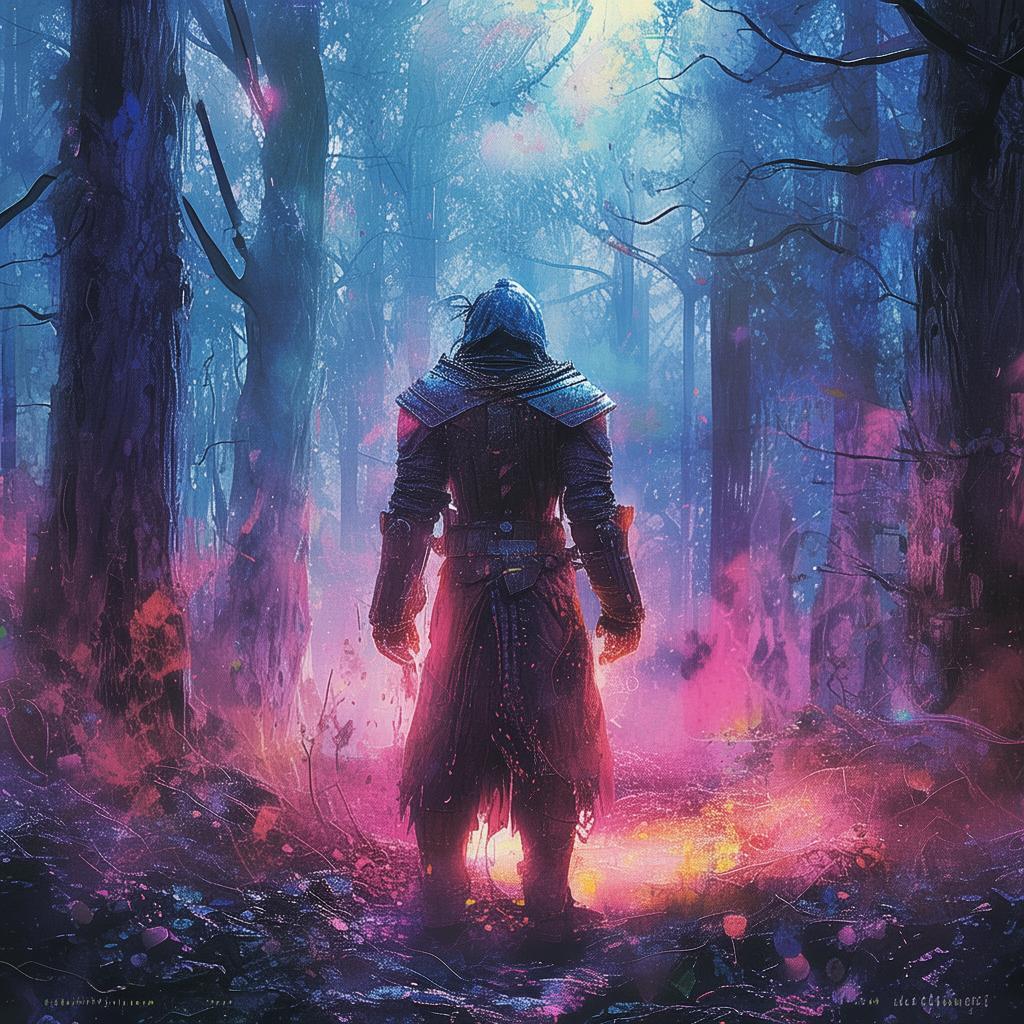The Blindfolded Mind's Enigma: The Unseen Truth
In the heart of an ancient city, shrouded in the mists of time, there lived a philosopher named Zeno. He was not like other philosophers, for he had been blind from birth. Yet, his mind was as sharp as a diamond, and his intellect was unparalleled. Despite his inability to see the world around him, Zeno's knowledge of philosophy and the human condition was vast and profound.
One day, a mysterious figure appeared at Zeno's doorstep. He was a man of few words, but his presence was as commanding as a storm. He handed Zeno a single piece of parchment, upon which was written a riddle that had been passed down through generations.

The riddle read:
"I am not alive, yet I grow; I do not have lungs, but I need air; I do not have a mouth, yet water kills me. What am I?"
Zeno pondered the riddle for days, his mind racing with possible answers. He sought counsel from his students, from the city's greatest thinkers, and even from the blindfolded oracles who claimed to speak with the gods. Yet, none could solve the enigma.
The riddle became a source of obsession for Zeno. He began to see the world in a new light, questioning everything he knew. He walked the streets of the city, feeling the wind, the rain, the touch of the ground beneath his feet. He listened to the sounds of the city, the laughter, the cries, the music. Yet, he saw nothing.
One night, as Zeno lay in his small room, pondering the riddle, he had a revelation. He realized that the answer lay not in the riddle itself, but in the very nature of his blindness. He understood that he was the riddle, for he was not alive in the way others were, yet he grew through knowledge and understanding. He did not have lungs, but he needed air to sustain his thoughts. He did not have a mouth, but he could be killed by the lack of understanding, for without it, he would be as dead as the riddle implied.
With this realization, Zeno felt a profound sense of peace. He understood that the world was not as it seemed, and that his blindness was not a curse, but a gift that allowed him to perceive the truth that others could not.
Word of Zeno's enlightenment spread throughout the city. People came from far and wide to hear him speak, to learn from his wisdom. And though he could not see their faces, he could feel their awe and respect through their words and actions.
Years passed, and Zeno's teachings became the cornerstone of a new philosophy. It was a philosophy that emphasized the importance of understanding over sight, of the unseen truths that govern the world. And though Zeno himself never saw the fruits of his labor, he knew that his mind, blindfolded and bound, had touched the very essence of reality.
The story of Zeno and the Blindfolded Mind's Enigma became a legend, a tale that was told and retold through the ages. It was a story that reminded people that the truth is often hidden in plain sight, and that the greatest truths are often those that cannot be seen with the naked eye.
In the end, the riddle was not solved by Zeno, but by his own understanding of himself and the world around him. And in this understanding, he found the greatest truth of all: that the mind, regardless of its limitations, is capable of seeing the unseen, understanding the unspoken, and touching the essence of reality.
✨ Original Statement ✨
All articles published on this website (including but not limited to text, images, videos, and other content) are original or authorized for reposting and are protected by relevant laws. Without the explicit written permission of this website, no individual or organization may copy, modify, repost, or use the content for commercial purposes.
If you need to quote or cooperate, please contact this site for authorization. We reserve the right to pursue legal responsibility for any unauthorized use.
Hereby declared.
